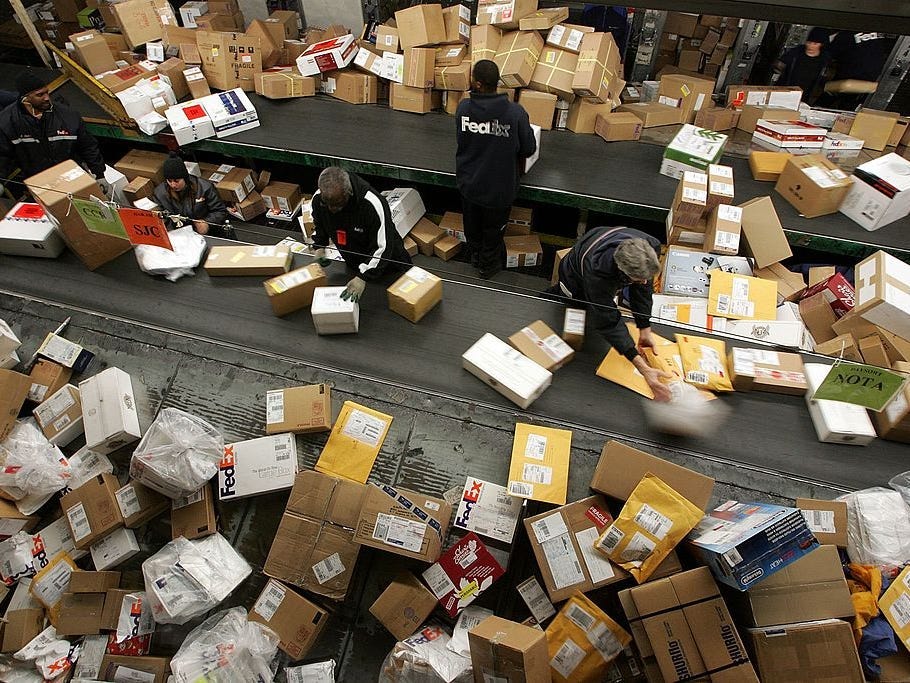
- Holiday gift returns are expected to be higher than ever this year as online shopping sales surge.
- Two out of three consumers will return at least one gift during the holiday season this year, according to Optoro.
- A shopping habit called "bracketing," where customers buy multiple colors or sizes of the same item, is contributing to returns.
Holiday gift returns are expected to be higher than ever this year as online shopping sales surge despite supply chain constraints.
An estimated two out of three consumers will return at least one gift during the holiday season this year, according to Optoro, a company that manages returns and excess inventory. Approximately $66.7 billion worth of product is forecasted to be returned by the end of 2021, potentially causing additional supply chain constraints as retailers face shipping delays, increased transportation costs, and labor shortages.
The National Retail Federation expects 2021 online sales this holiday season to reach $222.3 billion, a 13% increase compared to last year. And while the cost of returning purchases has increased by about 33% for retailers compared to last year, free product returns are still a large incentive for customers' online shopping habits, according to Optoro.
Since more consumers began their holiday shopping early this year to account for supply chain disruptions, retailers are seeing returns earlier than usual, according to CBRE, a commercial real estate services and investment firm.
In a report published this week, CBRE predicted that early returns may ultimately benefit consumers, as hard-to-find and "top quality merchandise" could make its way back into stores before the Christmas holiday. It could also help retailers trying to avoid losses by making more full margin sales while cutting down on discounting and return rates, CBRE wrote.
Meanwhile, the growing trend of "bracketing" — in which a customer buys multiple sizes or colors of a single item, chooses the version they like best, and sends the rest back to the retailer — is also contributing to increased returns. Bracketing is especially common when retailers offer free shipping and free returns because customers deem the practice low risk, Insider previously reported.
While the practice is nothing new, bracketing has been on the rise in recent years. A 2017 survey of 677 US shoppers conducted by the customer-experience platform Narvar, revealed that 40% of respondents bracketed their purchases at least occasionally. Meanwhile, a Narvar survey of 1,004 shoppers from last month showed that percentage has increased, with 58% of respondents stating they bracket their online purchases.
Although bracketing purchases is convenient for shoppers, last year's product returns generated 5.8 billion pounds of waste and 16 million metric tons of carbon emissions, according to Optoro. With an increase in returns this year, experts expect that number will go up.
"Retailers are increasingly attempting to balance consumer demand with sustainability, while still providing a returns experience that protects brand and customer loyalty," CBRE wrote in its report.